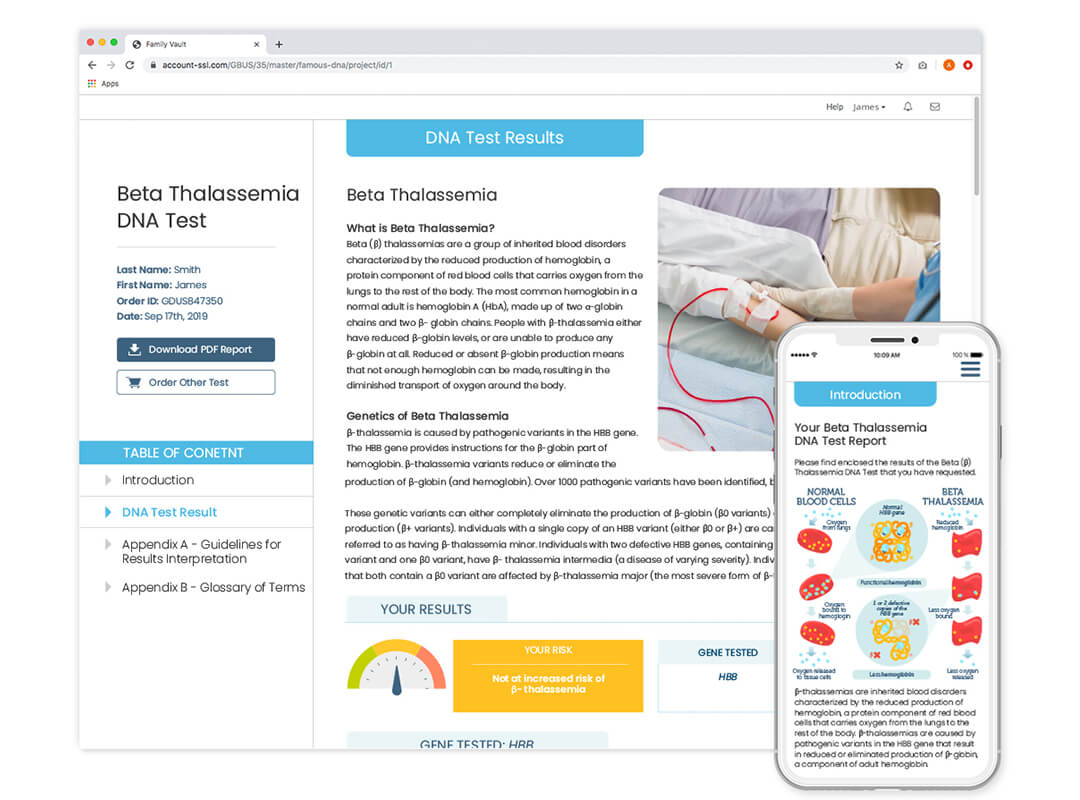Beta Thalassemia DNA Test
Are you a genetic carrier for beta thalassemia? Find out with this DNA Test.
- Detects ten HBB variants linked to beta thalassemia
- Characterized by the reduced production of hemoglobin
- Carrier screening test intended for couples who are planning to become pregnant
- 100% private and confidential online results
Already have DNA markers? Sign in and upload your data to view results.
Need to take the DNA Test? Order our easy-to-use swab kit.





